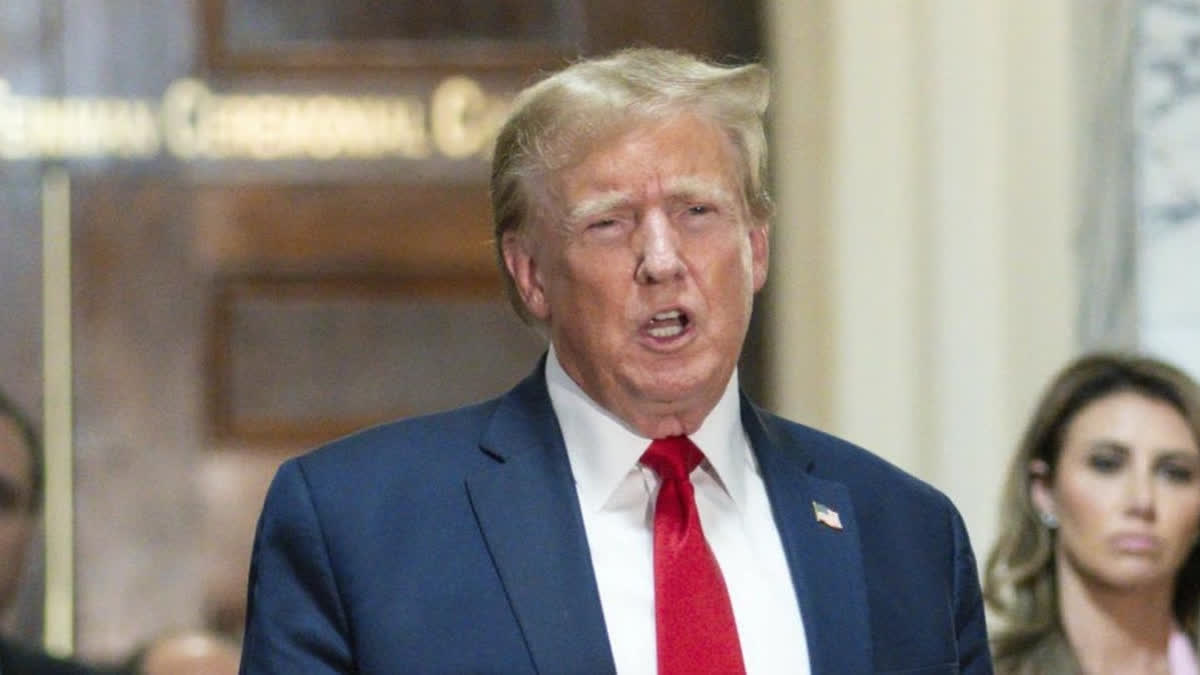Waterloo (USA): Former US President Donald Trump, addressing a crowd of over 1,000 supporters in Waterloo, Iowa on Tuesday, defended his recent remarks about immigrants crossing the southern border, reinforcing his stance on their alleged impact on the nation's blood. Trump, denying any similarity to fascist writings, notably mentioned Adolf Hitler's manifesto Mein Kampf.
"I never read Mein Kampf," Trump declared, dismissing comparisons to fascist ideologies. Doubling down on his anti-immigrant rhetoric, he reiterated his views that immigrants entering the country illegally were "destroying the blood of our country" and dismantling its fabric. During the rally, Trump emphasized his concerns about the influx of migrants, characterizing it as a border catastrophe and neglecting to address the Colorado Supreme Court's decision disqualifying him from the state's ballot under the insurrection clause.
The former president's history of contentious remarks about immigrants dates back to his 2015 campaign launch, where he infamously labelled Mexican immigrants as "bringing drugs, crime, and being rapists."
In his current campaign, Trump has advocated increasingly authoritarian measures, pledging to reinforce efforts to restrict citizens from specific Muslim-majority nations and intensify ideological screening for immigrants. Despite Trump's supporters acknowledging the effectiveness of his border policies, opinions on his rhetoric diverged. While some, like Marylee and John Geist, stressed the importance of legal immigration, others, like 22-year-old Alex Litterer, emphasized the contributions of legally immigrated individuals to the nation's diversity.
Recent polling indicates that a majority of Americans believe the nation's diverse population strengthens the country. However, about a third express concerns that increased immigration diminishes the influence of native-born Americans, as per a late 2021 Associated Press-NORC poll.
Trump's emphasis on immigration policy remains central to his second-term agenda, particularly as President Joe Biden's administration grapples with border security negotiations amidst record migrant numbers. Critics have targeted Biden for the handling of the border situation, potentially setting the stage for a rematch between Biden and Trump.
While many supporters appreciate Trump's outspoken nature, Jackie Malecek, a supporter from Waterloo, expressed discomfort with Trump's choice of words, citing an urgent need to address border issues but disagreeing with the phrasing used.
Democratic Governor Andy Beshear criticized Trump's rhetoric as dangerous and unnecessary, emphasizing the need to avoid dehumanizing immigrants living in the country without legal status, sentiments echoed by Vice President Kamala Harris.
Republican Senator JD Vance defended Trump's comments, interpreting them as referring to the drug epidemic and specifically the smuggling of fentanyl over the border. Customs and Border Protection statistics revealed that the majority of fentanyl seizures were carried out by US citizens.
However, extremism experts cautioned that Trump's language mirrored that of white supremacist ideology, drawing parallels to the language used by perpetrators of mass shootings. Senate Republican leader Mitch McConnell, in response to Trump's remarks, humorously mentioned his wife, an immigrant who served in Trump's administration, suggesting that Trump's statements hadn't concerned him previously.
Despite the controversy, Trump remains the frontrunner among likely Republican voters in Iowa and nationwide, with his campaign aiming for a decisive victory in the upcoming caucuses.
Read More:



